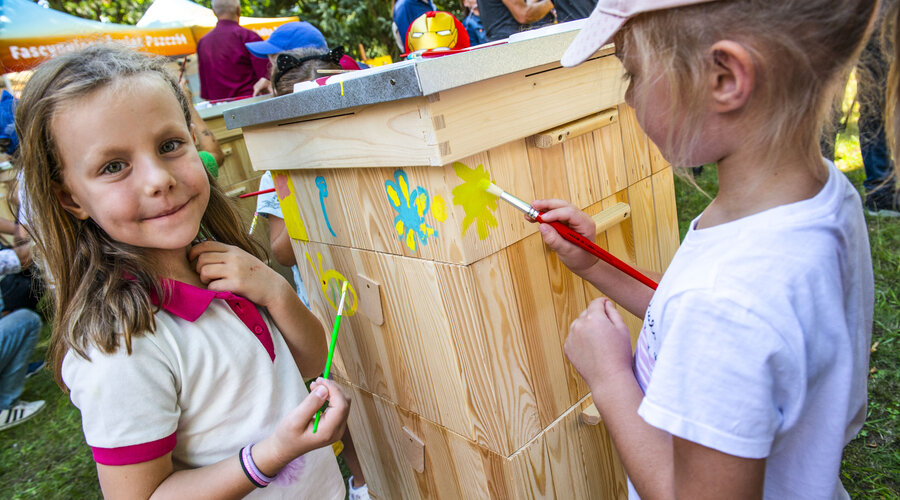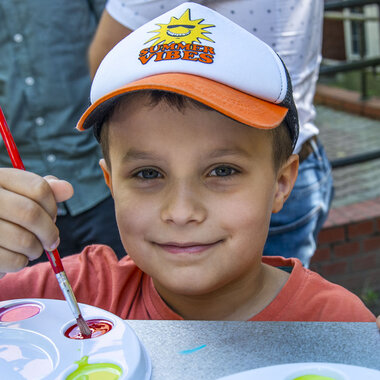We teach, care, and take care of the ecosystem - Copper Bees will take up residence in more apiaries at KGHM divisions
Sustainable use of resources, caring for the ecosystem, and supporting the environment - KGHM is developing the “Copper Bees” environmental program. Thousands of these beneficial insects will take up residence in the “copper” apiaries at KGHM divisions. Last year, beehives were set near the shaft of the Lubin Mining Plant in Rynarcice.
Bees are essential to the proper functioning of the ecosystem. To support the species, as part of its CSR activities, KGHM has prepared a program that promotes beekeeping. Specific measures are planned, with the expected result being an increase in the numbers of these beneficial insects. A total of 15 hives will be set in the green areas near the smelters and mine shafts, and they will soon be home to thousands of bees.
“Environmental protection is one of the strategic directions of KGHM’s development. We also aim to inspire the employees of the KGHM Group and the residents of the Copper Belt to get involved in environmental and climate protection campaigns. This can be done, among other things, by establishing apiaries and flower meadows. The hives at the copper company’s divisions will be tended by volunteers, our employees - beekeepers,” said Mirosław Kidoń, the acting Vice President of the Management Board (Foreign Assets) at KGHM Polska Miedź S.A.
Prior to the setting up of the apiaries, kindergarten-aged children from Lubin and children of KGHM employees painted the beehives, which will first be set up at the Hydrotechnical Plant, the Cedynia Copper Smelter, and the Legnica Copper Smelter.
Going green in the KGHM Group
As part of KGHM’s environmental project, apiaries have been operating for a year now at facilities belonging to the Polish Spa Group. These include sites near the Staropolanka water bottling plant in Kłodzko Spas and near the peloid mine in the Połczyn-Zdrój Spa. Honey from the bee colonies located there is used by spa patients, among others.
We teach the youngest
The Copper Bees program also includes initiatives intended to educate and promote beekeeping. What is it like to be a bee? What do the hives look like and how is honey made? These are attractions prepared for workshops and meetings planned among the youngest residents of the Copper Belt, among others.
Bees play a key role in nature. They feed on nectar and pollen while pollinating the plants they visit, which require this to spread and grow. The benefit of pollination is the food that is produced. According to the UN Food and Agriculture Organization, 100 crop species provide about 90% of the world’s food
Strategic direction
Caring for the environment is one of the strategic directions of KGHM’s development. Pro-environmental activities are incorporated in such KGHM documents as its Environmental Policy, Climate Policy. and Human Rights Policy. The Company’s goal is to achieve climate neutrality by 2050. The huge environmental projects that have been launched are bringing us closer to the achievement of this goal. The most important ones include plantings of trees and shrubs, and reforestation projects, which KGHM has been doing for years. KGHM planted more than 600,000 trees in 2022 alone. Ornithology fans are familiar with the falcons nesting on one of the stacks of the Głogów Copper Smelter.












